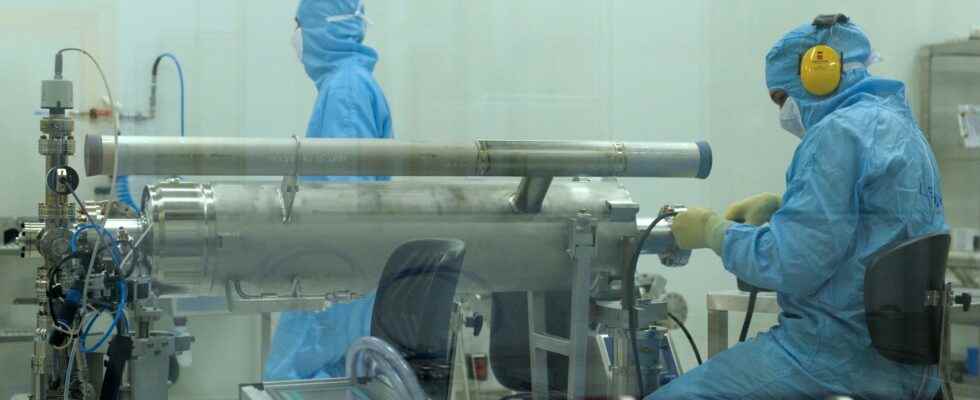“Do the French have confidence in science? “: this is an exciting survey recently published by the review of the Institut polytechnique de Paris, this research, education and innovation organization which brings together five of the most prestigious French engineering schools, including the Polytechnic School and ENSTA. Fascinating and encouraging since it shows a France which remains the land of the Enlightenment. We discover French people lucid about their own insufficiency in this area: only 21% of them consider that they have a satisfactory scientific culture. However, they do not confuse the limits of their own level of knowledge with those of the human mind since they are, hold on tight, 92% to have a good image of science. Hats off, dear compatriots, for this beautiful unanimity in a country that likes to cultivate the spirit of discord!
Better still, the reasons for this support warm the heart: for more than 9 French people out of 10, “science is a source of progress for humanity” and “science must remain a reference because it makes it possible to distinguish the true from the false on a large number of subjects. The best for last: the “eroticism of problems” dear to physicist-philosopher Etienne Klein is not a myth! 87% of us consider scientific disciplines to be “attractive”, which does not prevent us, at 70%, from judging them as complex and not very accessible parallels. Lucid and modest…: would we have changed our complaining and arrogant French professionals?
So, 2023, erotic year? In this season of wishes, it is good form to make a few wishes. That politicians listen to the voice of scientists first… rather than the one that says to listen to scientists: the subject is not to be ecstatic in front of Greta Thunberg but to integrate scientific speech into the political decision-making process, in times of acute crisis as well as in the long run. In this respect, the testimonies of Yves Bréchet, former high commissioner of the CEA, or of François Jacques, his successor, before the parliamentary commission of inquiry on energy sovereignty are overwhelming: the first screamed in the desert, the second was not even consulted.
A false debate
Let’s be clear: integrating the scientist does not mean letting him decide. Its role is to present options and their consequences, but it is up to politicians to decide knowingly and responsibly, and to assume the consequences of their choices. Pious wish? In this matter, the justice of the peace is the voter and it will be interesting to see if and how he will sanction the errors of our energy policy. The debate on the lack of scientific training of politicians is a false debate: dreaming of a National Assembly stuffed with polytechnicians – after all, in 1794, when it was born, the young Ecole polytechnique was housed in the Palais Bourbon – hardly sense.
Scientific rationality exists but so does political rationality. When Angela Merkel, a doctor in quantum chemistry, confirms Germany’s decision to phase out nuclear power in 2011, the scientist that she is knows that this jeopardizes a rapid exit from fossil fuels, but the policy that she is understands even more. that this ensures him to remain in power after the legislative elections of 2013. Similarly, during the health crisis, his brief speeches, structured around the triptych “scientific fact-political decision-concrete meaning for citizens” will remain a model of the genre, not because she is a scientist but because she knows how to hold a political discourse based on scientific facts. Conversely, Georges Pompidou, a literary normalien, made structuring and visionary decisions for our energy future in the 1970s. He knew nothing about nuclear physics but knew how to think, first against himself.
We wish, and this will be our last wish, that engineers and other representatives of the hard sciences, in particular gurus of degrowth, follow this example. Let them think about enriching their knowledge in philosophy, history or economics. Even take up epistemology, this magnificent science which consists in studying science and knowledge, through the prism of history, philosophy, sociology and cognitive sciences. Their approach to reality and its complexity will only emerge strengthened, as will their ability to doubt. For isn’t the raw material of the science of environmental transition the humble acceptance of the complexity of the world?
